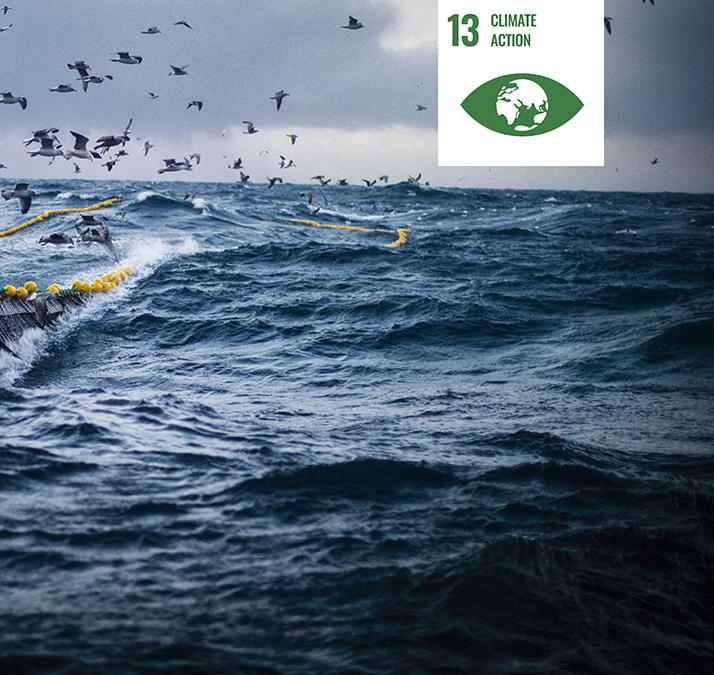
Arguably the most important ecosystem on earth, the ocean's ecosystems are essential for the planet's health and the survival of all living organisms. However, the ocean's vastness and depth pose significant challenges in monitoring and understanding these ecosystems.
The lack of information and understanding of the ocean's ecosystems limits our ability to protect and conserve them effectively. For example, real-time local monitoring could provide a much needed tool, allowing regulators to dynamically modify fishing quotas during a season. This is the challenge DCU researchers at the Insight SFI Research Centre for Data Analytics aimed to address.
With facilities at DCU and three other research sites, Insight is one of Europe’s largest data analytics research organisations. The centre is home to over 450 researchers, works with over 220 industry partners & has over €150 million in funding. The current project is one of many led by DCU.
The icon on this article reflects the research's contribution to UN Sustainable Development Goal 13: Climate Action. The Sustainable Development Goals are 17 objectives designed by the United Nations to serve as a shared blueprint for peace and prosperity for people and the planet.
SmartBay test site
DCU researchers used data from SmartBay’s test bed to produce underwater video analytics. This technology allows for the detection, classification, and indexing of marine life activities, which provides critical insights into the ocean's ecosystems.
In recent years, underwater video monitoring systems have been deployed for coastal/marine ecological studies. With the rapid developments in technology such as high resolution digital cameras, high volume data storage and long range data transmission, the long term deployment of remote underwater video (RUV) sensing systems is being realised.
This dataset is designed for developing systems that can be deployed in real world scenarios in which many fish would appear partially at the edge of the camera view. Furthermore, it is also found that the trained model can effectively be used to estimate fish density levels. Compared to a human analyst, which may take days to analyze a short video, the trained model in this work can process the raw video data in minutes. This may provide a much higher temporal sampling information to assist marine biologists in better understanding the biodiversity of the environment.
BlueWise Marine is a company based in GMIT iHub that works with the Marine Institute to promote the SmartBay testbed. SmartBay is Ireland’s national marine test site and observatory that provides continuous oceanographic and environmental data in near-real time. The current DCU project was funded under the SmartBay National Infrastructure Access Programme where they developed computer vision AI for marine environments.
A vision for the future
Our results clearly show that state-of-the-art computer vision deep neural networks can be effectively applied to any underwater datasets with the created benchmark dataset. The created dataset is designed to train real world systems, including situations where wildlife are moving quickly and appearing partially within the camera’s field of vision.
In recent years, although machine learning techniques for computer vision processing have been improved significantly in both accuracy and diversity, the lack of a good benchmark underwater dataset hindered its application in marine ecological study.
The creation of this public dataset in the underwater marine research domain would hopefully inspire more computer science researchers to develop new deep neural models to help marine scientists to better survey the marine resources. We hope with DCU’s initiation in creating a benchmark dataset, similar datasets with higher accuracy can be created in the future. In turn, we hope these datasets can drive computer science researchers around the world to develop, evaluate and test their new algorithms for studying marine environments.
At the Insight SFI Research Centre for Data Analytics our mission is to conduct high impact research in data analytics that benefits the individual, industry & society by enabling better decision making.

Prof Noel E O'Connor is CEO of Insight SFI Research Centre for Data Analytics at DCU



